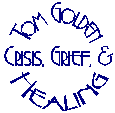

My father died two weeks ago at the age of 76. Even though it was not sudden, I wasn't prepared for the enormous sense of loss, for the void in my life his passing created.
He was born in 1923 in Salonika, Greece, a city home to 70,000 Jews at the time. He grew up poor, one of five children, worked from the time he was a child, really. His family needed the money so he was only able to complete the fourth grade before leaving his childhood behind to start earning money.
My memories of all the good times with him are still overshadowed by those of his final month spent at home, too weak to get out of bed or feed himself but still able to raise his eyebrows or lift his fingers to acknowledge a greeting or kind word. We cared for him, my mother, sister and I, the best we could, helping him do all the things he was used to doing himself. Some things he tried so hard to do for himself even when he was clearly too weak to do them, his dignity resisting our assistance. These were the toughest times.
When the Nazis invaded Greece in 1941, Dad began his journey into hell through several concentration camps, Auschwitz, Dacchau, and others. Of his immediate family, only he and his brother survived. Indeed of the 70,000 Jews in Salonika only 2,000 survived. He didn't often talk about his experiences but I remember he once told me that he was beaten severely for running from one of his "jobs" at a Camp. That job was tossing the dead bodies of his fellow inmates into a furnace.
I remember Dad used to take us to Atlantic City every summer, back when the boardwalk and the beach and the High Diving Horse were the main attractions. The shoe factory where Dad worked for almost forty years never gave him more than two weeks vacation, so he would stay with us in our rented rooms for those two weeks, then drive back to Philadelphia to work and return for the last two weekends of our month-long vacation. I can remember as a toddler him hoisting me onto his shoulders as he waded into the ocean, then holding my hands as he dipped my toes into the cold water.
After spending nearly three years in concentration camps, watching his family and friends being shot at close range, being beaten, humiliated and starved, at times drinking his own urine to survive, Dad was liberated on May 1, 1945. The train he was on, en route to another camp in Germany, abruptly stopped. When the doors to the cattle car were opened, he was greeted by smiling American soldiers; the war was over. Although it's difficult to imagine him enraged enough to physically harm someone, Dad told me that he and several others tied an unfortunate Nazi prison guard to a tree that day and beat him to death.
In the early seventies when I was a teenager and in high school, my hair out to there, wearing the requisite green army jacket and jeans, I was glad that Dad was always happy and welcome to hang out with me and my friends. Living in the city, I didn't drive then and Dad would often be my chauffeur, taking me to visit my buddies and even girls I dated. I never fully appreciated the fact that it wasn't his love of driving that kept him doing this but his love for his son and his understanding that this was the surest way to get to spend time with a teenager.
After the war, many survivors lived for several years in Germany, initially in a displaced persons complex, trying to regain their health until they moved on. It was here in the spring of 1945 that Dad, a handsome but skinny 23 year-old met my mother, a beautiful survivor born in Czechoslovakia, who was 19. Although they spoke 13 languages between them, they shared not one. This didn't hinder their courtship, however, and they were married several months later. On September 6, 1949, they arrived at Ellis Island and settled in South Philadelphia, raised a family and stayed married for 53 years.
During the last two weeks of his life, Dad would watch a Phillies game on TV with me, off and on. He was a devoted fan. When I was a boy, he would take me to games at Connie Mack, watching Jim Bunning and Johnny Callison play. Years later, when a client gave me tickets to watch a Phillies game at Veteran's Stadium from his employer's superbox, I took Dad and he really enjoyed it.
When the phone rang at 12:30 AM, I knew what I would hear. As I drove the empty highways from Limerick to South Philadelphia, I couldn't cry. Though not surprised, I was in shock. When I finally arrived, my mom and sister were upstairs; Dad was still in the hospital bed in the small living room. I had always joked with him about his bald head calling it "my honeydew" just before I kissed it. I pulled down the sheet and kissed it one last time. Now that the shock is over, the tears come easily.
A few days after the funeral, we held a prayer service at my sister's house. I stood in the back of the "minion" of ten men and the Rabbi. I turned and looked next to me at a photo of Dad that my sister had taken a year or two ago. The photo, a close-up from head to waist, is so clear that I felt I could touch him. In it, he holds his left forearm up in front of his waist showing the camera his only tattoo: "111308."
Irvin Levy
You can send email to Irvin at: [email protected]
mail welcome
anniversary date May 1999
date of post 6-1-99
